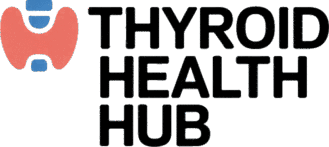Preparing for Thyroid Function Tests

Understanding your thyroid health is crucial for your overall well-being. With thyroid function tests, you can gain insights into how well your thyroid is working and what it means for your health. Let's explore the key takeaways that will empower you to take control of your thyroid health journey.
What You Will Learn
- Thyroid function tests measure hormone levels (TSH, T4, T3) critical for diagnosing thyroid disorders.
- Regular testing aids in monitoring thyroid health and adjusting treatment plans effectively.
- Being aware of common thyroid disorder symptoms can lead to timely intervention and improved health outcomes.
- Proper preparation for thyroid tests, including medication management and dietary adjustments, is key for accurate results.
Key Aspects of Thyroid Function Tests & Preparation
Understanding and preparing for your thyroid function tests involves several crucial steps, from knowing what the tests measure to managing medications and diet. This visual outlines the core components and preparation process to ensure accurate results and effective health management.
Thyroid Function Tests
- • TSH: Signals thyroid activity
- • T4: Regulates metabolism
- • T3: Active hormone form
Essential Preparation
- ✓ Timing: Morning tests
- ✓ Fasting: Confirm with provider
- ✓ Medications: Disclose all to doctor
Medication & Diet Influence
- ⚠ Biotin: Stop 48 hrs prior
- ⚠ Other meds: Disclose to provider
- ⚠ Diet: Avoid high-fiber, processed foods
Post-Test & Follow-up
- → Results: Few days to a week
- → Interpret: Understand normal ranges
- → Follow-up: Essential for management
Understanding Thyroid Function Tests and Their Importance
Understanding your thyroid function is crucial for maintaining overall health, especially if you suspect a thyroid disorder. Thyroid function tests are essential tools that help us evaluate how well your thyroid gland is working. These tests provide valuable insights into hormone levels, specifically Thyroid Stimulating Hormone (TSH), thyroxine (T4), and triiodothyronine (T3), which are pivotal in diagnosing conditions like hypothyroidism and hyperthyroidism.
As someone who has spent over a decade in the field of endocrinology, I can tell you that having a grasp of these tests not only aids in accurate diagnosis but also informs how we manage your condition moving forward. Let’s delve into what these tests entail and why they are so vital to your healthcare journey.
What Are Thyroid Function Tests?
Thyroid function tests are blood tests designed to measure the levels of specific hormones produced by your thyroid. The most common tests include:
- TSH (Thyroid Stimulating Hormone): This hormone signals your thyroid to produce T4 and T3. High levels often indicate an underactive thyroid, while low levels may suggest an overactive thyroid. More information on the TSH test can be found on MedlinePlus.
- T4 (Thyroxine): This hormone is primarily responsible for regulating metabolism. Its levels can indicate if your thyroid is functioning properly.
- T3 (Triiodothyronine): Although T3 is produced in smaller amounts, it’s the more active form of thyroid hormone. Testing its levels is crucial in understanding thyroid function.
These tests provide a comprehensive view of your thyroid health and are often the first step in diagnosing any thyroid-related issues. Are you familiar with your own thyroid function results? Understanding them can empower you to take charge of your health!
Why Are These Tests Crucial for Your Health?
The importance of thyroid function tests cannot be overstated. They serve multiple purposes, including:
- Diagnosis: They help identify thyroid disorders such as hypothyroidism or hyperthyroidism, as detailed by the National Institute of Diabetes and Digestive and Kidney Diseases (NIDDK).
- Management: Regular testing allows for monitoring hormone levels, ensuring effective treatment adjustments.
- Symptom Correlation: These tests can clarify whether your symptoms, such as fatigue or weight changes, are related to thyroid function.
When you understand your thyroid function, you can take proactive steps to manage your health. It’s about more than just numbers; it’s about feeling your best! Are you ready to learn more about the common symptoms of thyroid disorders?
Common Symptoms of Thyroid Disorders to Watch For
Being aware of the symptoms related to thyroid disorders is pivotal in seeking timely help. Common symptoms include:
- Fatigue or lethargy
- Unexplained weight gain or loss
- Changes in mood, such as anxiety or depression
- Hair loss or changes in hair texture
- Cold intolerance or excessive sweating
If you notice any of these symptoms, it’s essential to have a thorough discussion with your healthcare provider. Early detection can significantly improve your management and quality of life. Remember, at Thyroid Health Hub, we are dedicated to providing resources that help you better understand and manage your thyroid health.
Preparing for Thyroid Function Tests: Key Steps
Preparing for thyroid function tests can feel daunting, but knowing what to expect can ease your concerns. Proper preparation not only ensures accurate results but also makes the process smoother for you. Let’s go over essential steps to take before your tests.
Being informed about the preparation process can make a significant difference in your experience. I’m here to guide you through these necessary steps!
Essential Preparation Tips for TSH, T4, and T3 Tests
To ensure that your thyroid function tests yield the most accurate results, here are some preparation tips:
- Timing: Schedule your test in the morning, as TSH levels can fluctuate throughout the day.
- Fasting: In most cases, fasting is not required, but confirm with your healthcare provider.
- Medications: Discuss any ongoing medications with your healthcare provider, as some may affect test results. The American Thyroid Association provides additional guidance on preparing for thyroid function tests.
Being proactive about these steps can help streamline your appointment and ease any anxiety you might have. Let’s continue to the specifics of what you should know about test requirements.
What You Should Know About Test Requirements
Each test has unique requirements to ensure accuracy. Understanding these can help you feel prepared:
- Most tests require a simple blood draw.
- Inform your healthcare provider about any recent health changes or medications.
- Be ready to discuss symptoms and health history during your appointment.
Knowledge is power! With this information, you’ll feel more confident as you approach your thyroid tests.
Medication Management Before Your Test
Managing your medications is a crucial part of test preparation. Certain medications can interfere with test results, so it’s essential to discuss your current regimen with your healthcare provider.
How Biotin and Other Medications Affect Results
Biotin supplements, commonly taken for hair and nail health, can significantly impact thyroid test outcomes. High doses of biotin can lead to falsely elevated results, especially in TSH tests. To avoid confusion, it’s advisable to stop taking biotin at least 48 hours before your test.
Common Medications to Disclose to Your Healthcare Provider
Make sure to inform your healthcare provider about medications, such as:
- Glucocorticoids
- Estrogen-containing medications
- Anticonvulsants
Being transparent about your medications allows for more accurate test interpretation and better management of your thyroid health.
Understanding Medication Interaction with Thyroid Tests
Some medications can alter hormone levels and affect test results. It’s essential to have a candid conversation with your healthcare provider about how your medications may impact your thyroid function tests. This understanding will help you both make informed decisions regarding your treatment plan.
Dietary Considerations for Optimal Test Accuracy
Your diet can also play a role in the accuracy of thyroid function tests. Below are some dietary considerations to keep in mind:
Foods to Avoid and When to Stop Eating Them
Certain foods can interfere with test results. It’s best to avoid:
- High-fiber foods the evening before your test
- Processed foods or those high in sugar
- Excessive amounts of soy products, which can affect hormone levels
By being mindful of your diet, you can help ensure that your test results reflect your true thyroid function.
Hydration Tips: How Much Water Is Enough?
Staying hydrated is essential, but you should aim for moderation before your test. Drinking enough water helps with the blood draw but avoid overhydrating right before the test. Generally, sipping water throughout the day leading up to your appointment should suffice!
The Role of Iodine Intake in Thyroid Function Tests
Iodine is crucial for thyroid hormone production, but your intake before the test can affect results. If you’re taking iodine supplements or consuming iodine-rich foods, it’s wise to discuss this with your healthcare provider to determine the best approach prior to testing.
Specific Preparations for Different Types of Thyroid Tests
Different thyroid tests may require unique preparations. Understanding these specifics can help ensure accurate results.
Understanding the Thyroid Antibody Tests
Thyroid antibody tests are crucial for diagnosing autoimmune thyroid conditions, such as Hashimoto's thyroiditis. To prepare, be aware of the following:
Preparation Requirements You Should Follow
It’s best to:
- Avoid any supplements that may interfere with the test results, particularly those affecting immune function.
- Ensure you’re well-hydrated, as it can help with blood draws.
These simple steps can enhance the accuracy of your results.
How to Prepare for Iodine Uptake Scans
Iodine uptake scans help assess thyroid function by measuring how much iodine the thyroid absorbs. Let’s look into the preparation needed:
Special Dietary Restrictions for These Tests
For these scans, it’s important to follow any dietary restrictions provided by your healthcare provider, such as:
- Avoiding iodine-rich foods, including seafood and iodized salt, 2 weeks before the scan.
- Refraining from certain medications that contain iodine.
These precautions are vital for obtaining accurate scan results!
Managing Anxiety and Expectations Before Your Appointment
Feeling anxious about your upcoming tests? You’re not alone! It’s common to feel nervous before medical tests. Let’s explore ways to manage that anxiety.
Tips for Reducing Test-Related Anxiety
Here are some strategies to help ease your nerves:
- Practice deep breathing exercises before your appointment.
- Bring a friend or family member for support during your visit.
- Educate yourself about the testing process to alleviate fear of the unknown.
Taking proactive steps to manage your anxiety can help you feel more in control when you arrive for your test.
What to Expect During the Testing Process
Understanding what happens during your tests can also help ease your concerns. Generally, you can expect:
- A health professional will explain the procedure to you.
- You’ll have a blood draw, which typically takes only a few minutes.
- Results will be discussed in a follow-up appointment.
Knowing what to expect can significantly reduce anxiety and help you feel more prepared for your visit!
Post-Test Expectations: Interpreting Your Results
Once your tests are complete, understanding your results is the next step. Let’s discuss what you can expect!
How Long Will It Take to Receive Your Results?
Typically, you can expect to receive your thyroid function test results within a few days to a week. Check with your healthcare provider about their specific timeline to better manage your expectations.
Understanding Your Thyroid Test Results and Normal Ranges
Your results will be compared against normal ranges for TSH, T4, and T3. Understanding these ranges can help you grasp what your results mean for your health.
Don’t hesitate to ask your healthcare provider to clarify any terms or numbers you find confusing; this knowledge is key to your health journey!
Follow-Up Testing for Thyroid Disease Management
In some cases, follow-up testing may be necessary to monitor your thyroid health. Regular testing can help ensure effective management of your condition and adjust treatment plans as needed.
By staying informed and proactive, you can take control of your thyroid health! Remember, at Thyroid Health Hub, we’re here to support you every step of the way.
Pro Tip
As you prepare for your thyroid function tests, consider keeping a health journal. Documenting your symptoms, medications, and any dietary changes can provide valuable insights for your healthcare provider, leading to more accurate diagnoses and tailored treatment plans.
Frequently Asked Questions About Thyroid Function Tests
What are the most common thyroid function tests?
The most common thyroid function tests include Thyroid Stimulating Hormone (TSH), Thyroxine (T4), and Triiodothyronine (T3). These tests measure the levels of specific hormones to assess thyroid activity.
Why are thyroid function tests important?
Thyroid function tests are crucial for diagnosing thyroid disorders like hypothyroidism and hyperthyroidism, monitoring hormone levels for effective treatment management, and correlating symptoms such as fatigue or weight changes with thyroid function.
How should I prepare for a thyroid function test?
Key preparation steps include scheduling your test for the morning, discussing all current medications with your healthcare provider (especially biotin, which should be stopped 48 hours prior), and being mindful of dietary intake by avoiding high-fiber or processed foods the evening before.
Can medications affect my thyroid test results?
Yes, certain medications such as biotin, glucocorticoids, estrogen-containing medications, and anticonvulsants can affect thyroid test results. It's essential to inform your healthcare provider about all medications and supplements you are taking.
What should I do if I feel anxious before my test?
To reduce anxiety, you can practice deep breathing exercises, bring a friend or family member for support, and educate yourself about the testing process. Knowing what to expect can significantly ease your concerns.
Summarizing Your Preparation Journey
Preparing for thyroid function tests can feel like a daunting task, but with the right roadmap, you can navigate it successfully! Let’s recap the essential steps and considerations that will set you up for accurate results.
- Know the Tests: Familiarize yourself with the specific thyroid tests you will undergo, including TSH, T4, and T3.
- Medication Management: Discuss any medications you're taking with your healthcare provider and understand their potential impact on test results.
- Dietary Adjustments: Pay attention to your diet—certain foods may need to be avoided prior to testing.
- Hydration is Key: Stay hydrated, but be mindful of how much water you drink before the tests.
Being well-prepared will not only help you feel more in control but can also lead to more accurate test results. Remember, your health is a journey, and every step you take to understand it better is a step in the right direction!
Taking Action: Communicating with Your Healthcare Provider
Questions to Ask Before Your Thyroid Function Test
Before you head into your thyroid function test, it’s important to have a conversation with your healthcare provider. This is your chance to ensure you’re fully informed. Here are some questions you might consider asking:
- What specific tests will be conducted, and what do they measure?
- Are there any specific preparations I need to follow?
- How will my current medications affect the test results?
- When can I expect to receive my test results?
Asking these questions not only clarifies any uncertainties but also empowers you to take charge of your thyroid health journey. Engaging with your provider shows your commitment to understanding your condition better!
Next Steps: Follow-Up Testing and Ongoing Care
Once your test results are in, it’s crucial to understand what they mean and what comes next. Depending on the results, your healthcare provider may recommend follow-up testing or adjustments in your treatment plan. Here are some potential next steps:
- Schedule follow-up appointments to discuss your results in detail.
- Consider additional tests if initial results indicate abnormalities.
- Work on a management plan tailored to your specific needs.
- Engage in regular monitoring to track your thyroid health over time.
Your commitment to follow-up care is a vital part of effectively managing thyroid health. At Thyroid Health Hub, we believe that ongoing education and support are key to feeling empowered in your journey!
Understanding Patient Rights in Thyroid Health Management
As a patient, you have rights that should be respected throughout your healthcare journey. Knowing these rights can help you advocate for yourself effectively. Here are some core rights every patient should be aware of:
- Right to Information: You have the right to be fully informed about your health, tests, and treatment options.
- Right to Confidentiality: Your medical information should be kept private and secure.
- Right to Participate: You have the right to participate in decisions about your healthcare.
- Right to Respect: You deserve to be treated with dignity and respect by all healthcare professionals.
Understanding and asserting your rights empowers you to take an active role in managing your thyroid health. Remember, you are not alone in this journey—Thyroid Health Hub is here to help you navigate every step!
Recap of Key Points
Here is a quick recap of the important points discussed in the article:
- Understanding Thyroid Function Tests: These tests measure TSH, T4, and T3 levels to assess thyroid health.
- Importance of Tests: Thyroid function tests are crucial for diagnosing disorders, managing treatment, and correlating symptoms with thyroid function.
- Preparation Steps: Key preparations include scheduling tests in the morning, discussing medications with your healthcare provider, and maintaining a balanced diet.
- Managing Medications: Certain medications, particularly biotin, can interfere with test results and should be discussed with your provider.
- Dietary Considerations: Avoid high-fiber, processed, and excessive soy foods before tests for accurate results.
- Anxiety Management: Practice relaxation techniques, bring support, and understand the testing process to ease anxiety.
- Post-Test Follow-Up: Expect results within days and discuss next steps for managing thyroid health with your provider.








